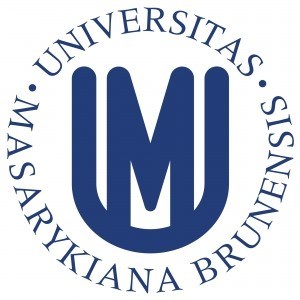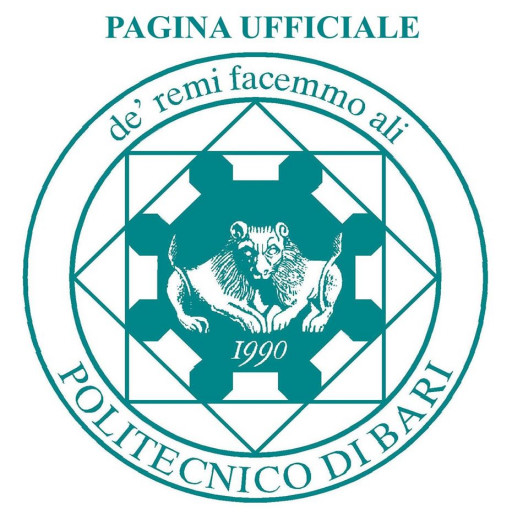Photos of university / #muni_cz
Embedded Systems master's degree program at Masaryk University offers a comprehensive education in the design, development, and integration of embedded hardware and software solutions. This interdisciplinary program combines principles from computer science, electrical engineering, and automation to prepare students for challenging careers in industries such as automotive, robotics, consumer electronics, telecommunications, and industrial automation. Throughout the course, students gain in-depth knowledge of microcontrollers, real-time operating systems, digital signal processing, embedded software development, and hardware design. The curriculum emphasizes practical skills through laboratory work, project-based learning, and collaboration with industry partners, ensuring graduates are well-equipped to tackle real-world technical problems. Students will also explore topics like cybersecurity in embedded systems, IoT (Internet of Things) solutions, and energy-efficient system design, reflecting current technological trends and demands. The program is designed to foster innovation, problem-solving, and project management skills, enabling graduates to develop complex embedded systems from concept to implementation. With access to state-of-the-art laboratories and research facilities, students have the opportunity to work on cutting-edge projects and contribute to advancements in embedded technology. The faculty's expertise in embedded systems, automation, and signal processing provides a nurturing environment for aspiring engineers and researchers. Graduates of this master's program are prepared for careers in R&D, system integration, or further doctoral studies. They will possess the necessary technical knowledge, practical skills, and problem-solving abilities to excel in rapidly evolving technological landscapes. This program also encourages international collaboration and offers opportunities for student exchanges and joint research projects with partner institutions worldwide. Overall, the Embedded Systems master's degree at Masaryk University is an ideal choice for students passionate about developing intelligent and autonomous systems that shape the future of technology.
Embedded Systems at Masaryk University offers a comprehensive curriculum designed to equip students with the essential knowledge and practical skills needed to develop, analyze, and optimize embedded systems across various industries. The program covers a wide range of topics, beginning with fundamental principles of computer architecture, programming in low-level languages such as C and Assembly, and the design of real-time operating systems. Students delve into hardware-software interaction, embedded system design methodologies, and the integration of sensors and actuators to create intelligent systems. Emphasis is placed on developing proficiency with microcontrollers and microprocessors, including their configuration and programming for specific applications.
The coursework includes detailed modules on embedded software development, including debugging and testing techniques, as well as the use of development environments and hardware-in-the-loop testing. Students learn about energy-efficient design principles, which are crucial for applications in portable and remote devices. The program also covers communication protocols such as UART, I2C, SPI, and CAN bus, enabling students to design systems capable of reliable data exchange in complex networks.
A key aspect of the program is project-based learning, where students work on real-world problems, often collaborating with industry partners. This practical experience is supplemented by laboratory exercises that simulate real embedded system scenarios, fostering hands-on skills and problem-solving abilities. The curriculum also explores modern trends in embedded systems, including Internet of Things (IoT), sensor networks, and embedded security measures.
Graduates of this program will be well-prepared for careers in industries such as automotive, aerospace, consumer electronics, and automation. They will possess the expertise to develop embedded solutions that are efficient, reliable, and innovative, contributing to the advancement of technology in various fields. The program's strong foundation in both hardware and software aspects ensures that students are capable of handling the complex challenges of modern embedded systems design and application.
Program requirements for the Embedded Systems master's degree at Masaryk University include a solid foundational knowledge in computer science and engineering principles, with prerequisites often encompassing completed bachelor's studies in relevant fields such as Electrical Engineering, Computer Engineering, Informatics, or related disciplines. Applicants are typically expected to demonstrate proficiency in programming languages such as C, C++, and Python, alongside a good understanding of digital systems, electronics, and software development methodologies.
The curriculum emphasizes the development of skills in designing, implementing, and analyzing embedded systems, which are integrated into various modern electronic devices and IoT applications. Prior coursework or experience in microcontroller programming, real-time operating systems, hardware description languages, and sensor interfacing is highly beneficial. Students should also possess problem-solving and analytical skills to tackle complex system integration and optimization challenges.
Admission requirements often include submitting academic transcripts, a motivation letter, and sometimes letters of recommendation. English language proficiency is typically required, with proof such as TOEFL or IELTS scores, since the program may be offered partly or fully in English to support international students. Additionally, practical experience through internships or projects in embedded systems is considered advantageous, although not always mandatory.
The programme encourages interdisciplinary expertise, so familiarity with software engineering, digital electronics, and system design is necessary. Students are expected to undertake practical coursework, including laboratory sessions, project work, and thesis research, contributing to their ability to develop innovative embedded solutions in industry or academia after graduation. Overall, the program aims to nurture specialists capable of working in diverse sectors such as automotive, telecommunications, automation, and consumer electronics, requiring a comprehensive understanding of embedded hardware and software integration.
The financing of the Embedded Systems master's program at Masaryk University is structured to facilitate accessibility and support for students pursuing this specialized field of study. The program primarily offers tuition fee-based studies, with the possibility of various financial aid options, scholarships, or grants for eligible students. Tuition fees are determined by the university for international and domestic students, and they are set to ensure the sustainability and quality of the educational experience.
Students may apply for scholarships provided by Masaryk University, which are available based on academic excellence, financial need, or specific criteria related to the program. These scholarships aim to reduce the financial burden on students and encourage talented individuals to excel in embedded systems and related fields. In addition to university scholarships, students can seek external financial aid from government programs, industry-sponsored grants, or international organizations supporting technological education.
The university might also offer payment plans to split tuition fees over the academic year or semester, easing the financial planning for enrolled students. Furthermore, students have opportunities for part-time employment on or around campus, which can provide additional income to support their studies. International students should also explore visa-related work permissions that may allow them to work legally during their studies.
For students involved in research projects or high-level academic achievement, there may be additional funding opportunities or stipends available. The university encourages students to actively seek financial support through various channels, including university portals, dedicated scholarship offices, and external funding bodies.
Overall, the financing options for the Embedded Systems master's program aim to create an inclusive environment where students from diverse backgrounds can access quality education while managing their financial commitments efficiently. The university continuously reviews and updates its funding policies to align with the evolving educational landscape and the needs of its student body, ensuring the program remains attractive and economically feasible for future students interested in embedded systems.
Embedded Systems is a specialized study program offered at Masaryk University that focuses on the design, development, and application of embedded systems in various industries. The program provides students with comprehensive knowledge in computer science, electronics, and software engineering, allowing them to understand the integration of hardware and software components within embedded devices. Throughout the course, students learn about real-time operating systems, microcontroller programming, sensor integration, signal processing, and system security, preparing them for roles in sectors such as automotive, manufacturing, telecommunications, and consumer electronics.
The curriculum combines theoretical lectures with practical laboratory work, ensuring students gain hands-on experience with relevant tools and technologies. Students are encouraged to participate in projects, internships, and collaborations with industry partners, which enhances their practical skills and professional readiness. The program also emphasizes research and development, encouraging innovative thinking and problem-solving approaches to emerging challenges in embedded systems.
Graduates of the Embedded Systems program acquire a solid foundation for careers as embedded systems engineers, hardware/software developers, system architects, or project managers. They are equipped to work on the development of embedded applications, IoT solutions, automation systems, and smart devices. The program often includes coursework on communication protocols, power management, debugging techniques, and system validation.
Given the rapid evolution of technology, the program instructors continuously update the curriculum to include current trends and advancements, such as wireless communication, cybersecurity in embedded devices, and artificial intelligence integration. Students also have access to state-of-the-art laboratories and resources that facilitate experimentation and innovation.
The program is designed to be interdisciplinary and collaborative, often involving faculty from computer science, electronics, and engineering faculties. Graduates are prepared to contribute to the fast-paced technological landscape, with skills highly valued by employers worldwide. Overall, the Embedded Systems program at Masaryk University offers a rigorous and practical education for students aspiring to specialize in embedded technologies and make impactful contributions in various technological fields.









